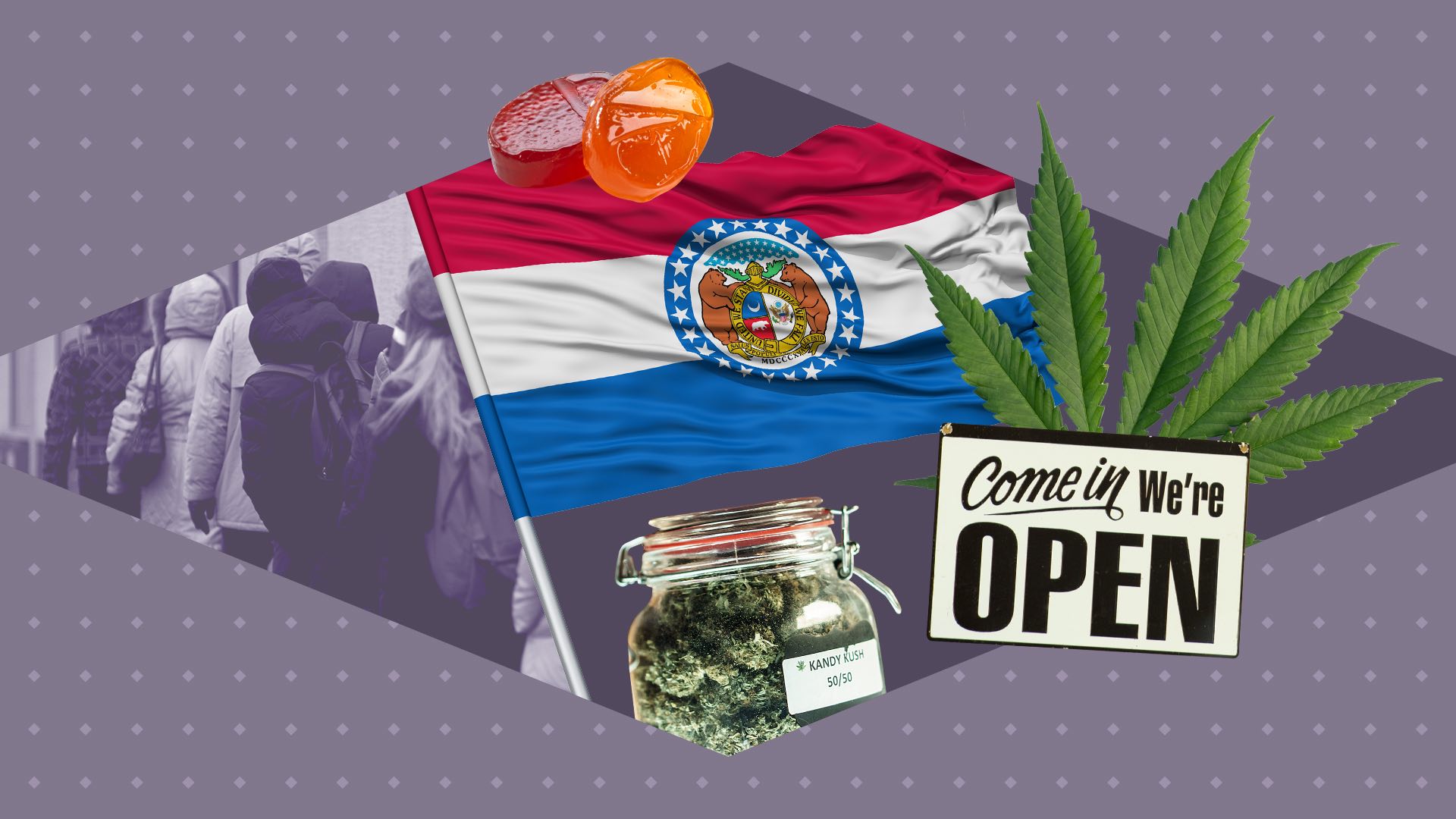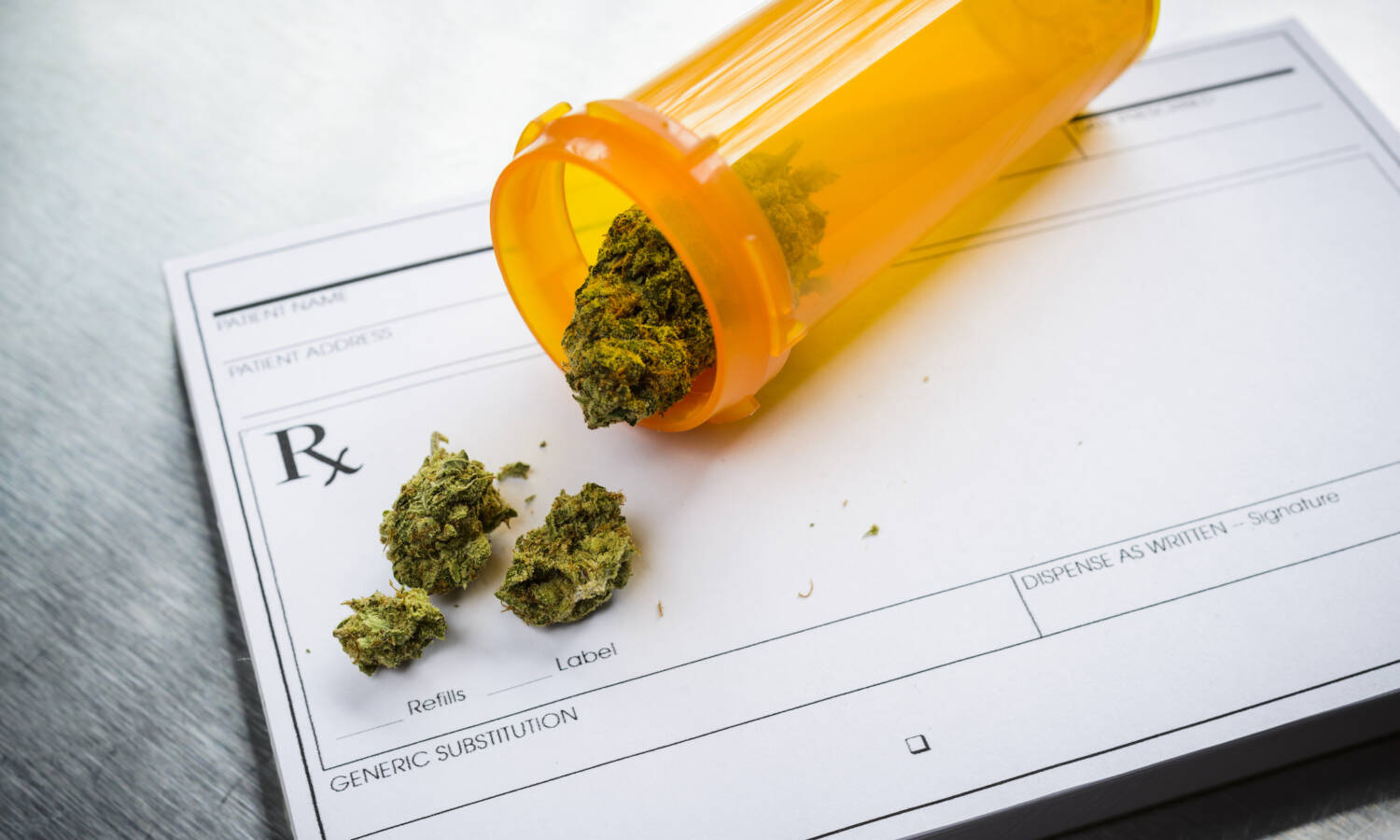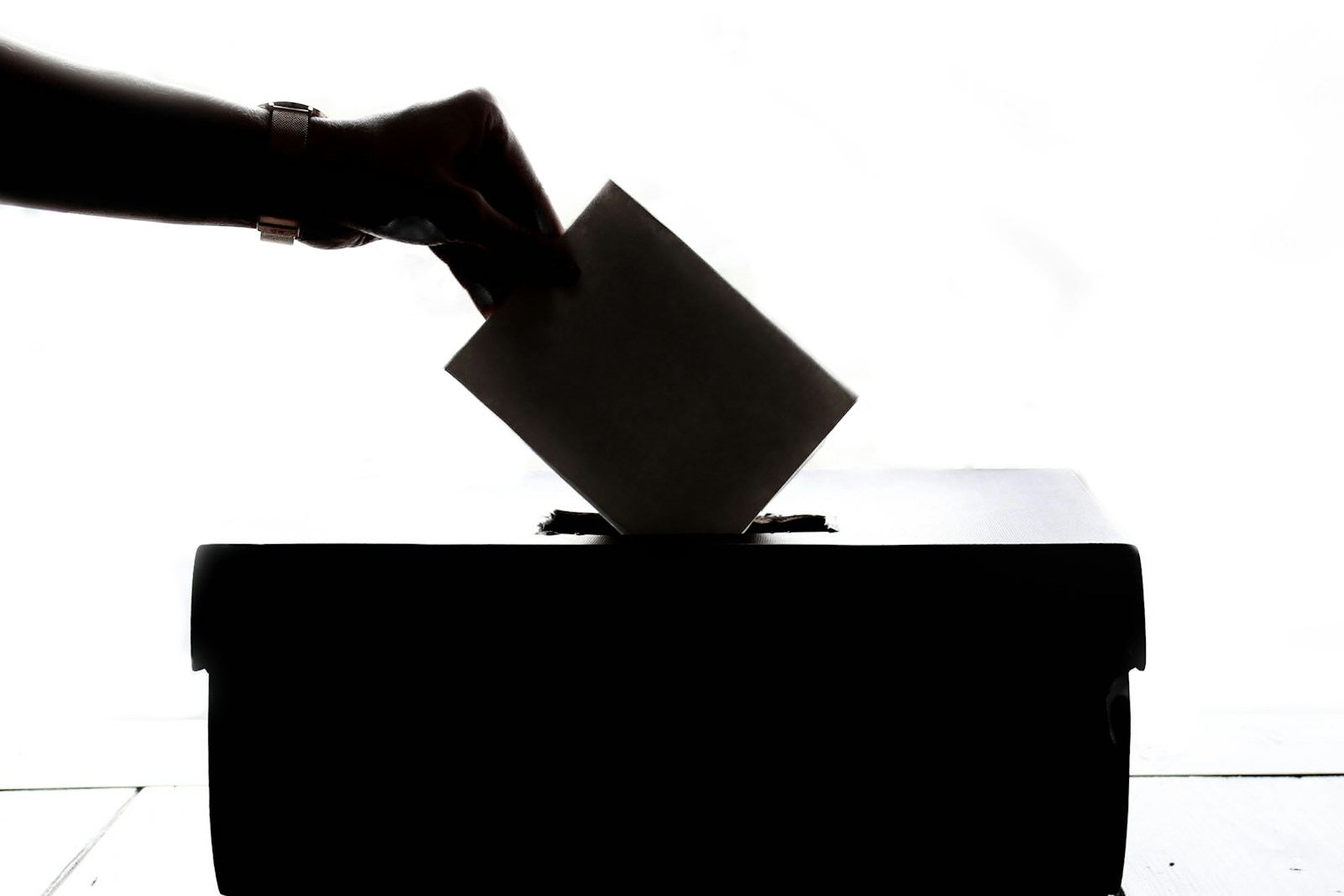The numbers are in: Missouri’s Department of Health and Senior Services today offered the first glimpse into just how well the Show-Me State’s first weekend of recreational cannabis sales went.
On Friday, Feb. 3, Missouri’s 198 operating dispensaries combined to sell more than $3 million in recreational marijuana and nearly $2 million in medical cannabis. On Saturday, rec sales eclipsed $3.3 million and medical sales dipped to $1.3 million. Consumers in the Show-Me State scaled back on Sunday, buying close to $2.2 million in adult-use marijuana and about $900,000 in medical product.
The weekend saw a grand total of $12.7 million in weed sales, $8.5 million coming from recreational buyers and the other $4.2 million coming from medical cardholders.
Related
How to find the legal weed stores opening in Missouri
After a big weekend, stores settle into a normal groove
Last week state officials suprised nearly everyone by giving stores the green light to go ahead with adult-use weed sales on Friday, rather than wait until Monday, as was expected. That kicked off a busy weekend for consumers, who went looking for their nearest store, and retailers, who saw an early surge in sales.
By Monday morning, things had calmed down. A tour of St. Louis-area stores found a smattering of curious customers served by budtenders still catching their breath.
The waiting room at Root66 South Grand sat empty shortly after the popular store opened at 10 a.m. Monday. But the weekend was another story, according to budtender Patrick O’Donnell. After serving some 40 paying customers each day during the medical–only era, the Root66 location — one of three Root66 stores in St. Louis — saw upwards of 200 paying customers on Friday, Saturday and Sunday this weekend when state authorities turned the switch to rec.
Related
Missouri’s best weed strains and products of 2023
“Absolutely insane,” O’Donnell said. “We had lines of people from the time we opened to pretty much the minute we closed.”
Root66 employees found out late last Thursday night that Missouri could start rec sales last Friday instead of today, O’Donnell said. They learned the dispensary had the green light for adult use at 6 a.m. Friday, and met the exciting day with mixed feelings.
They’d slowly been loading up the dispensary, a converted former McDonald’s restaurant, for weeks. Even so, the early start had Root66 out of stock for nearly one-third of its preroll menu.
Customers packed the store’s waiting rooms by the dozen over the weekend, with some 20 to 25 people waiting at a time. Thankfully, lines didn’t get long enough to leave customers outside in the freezing St. Louis cold.
No lines, no waiting on Monday morning
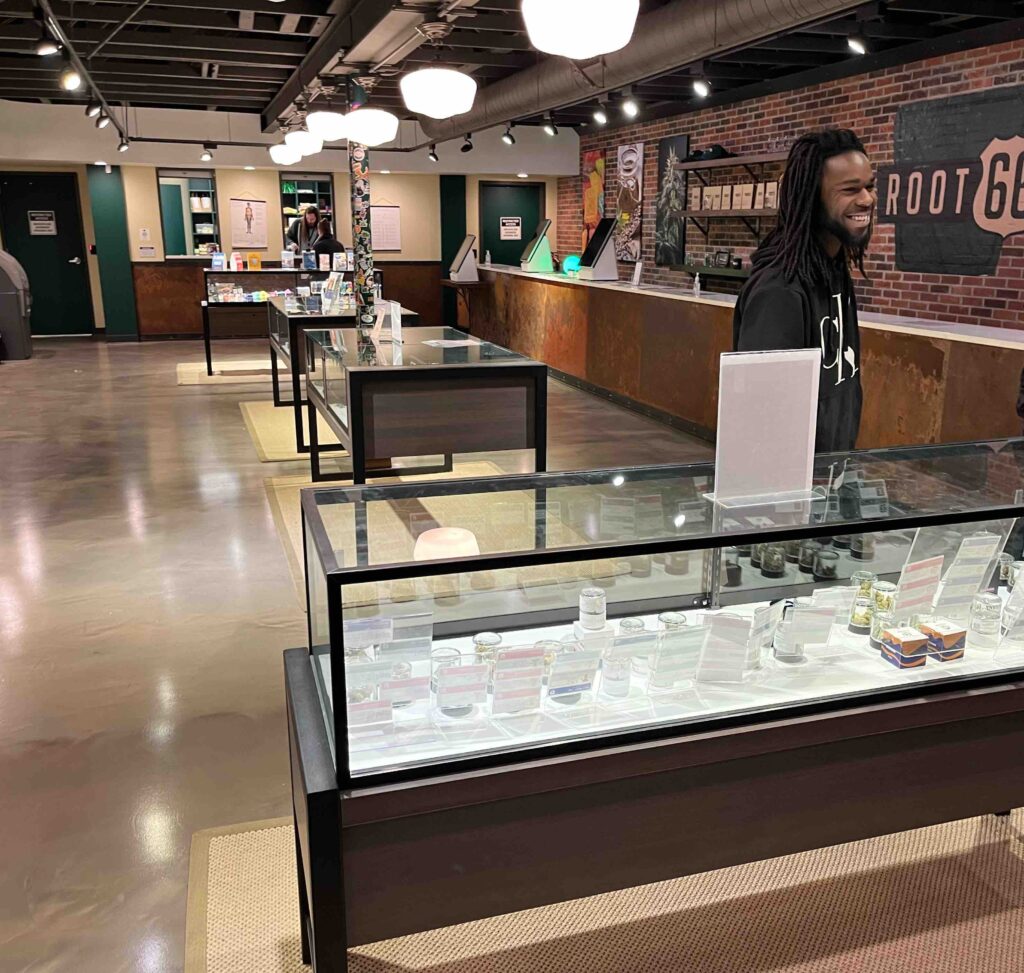
Local resident Deion Harris visited Monday morning to load up on Root66’s popular “Fruit by the Foot” pre-rolls, after burning through the inventory he bought on Friday. Three half-gram joints, sold for $14, was enough to get through one evening, Harris said. But he tripled his order on Monday morning.
“I’m really glad this day is here and that we can all buy legitimate cannabis,” he said. “It’s still mostly cheaper on the street, but you’re definitely getting what you pay for here.”
Viola in St. Louis: Yes, it’s actually open
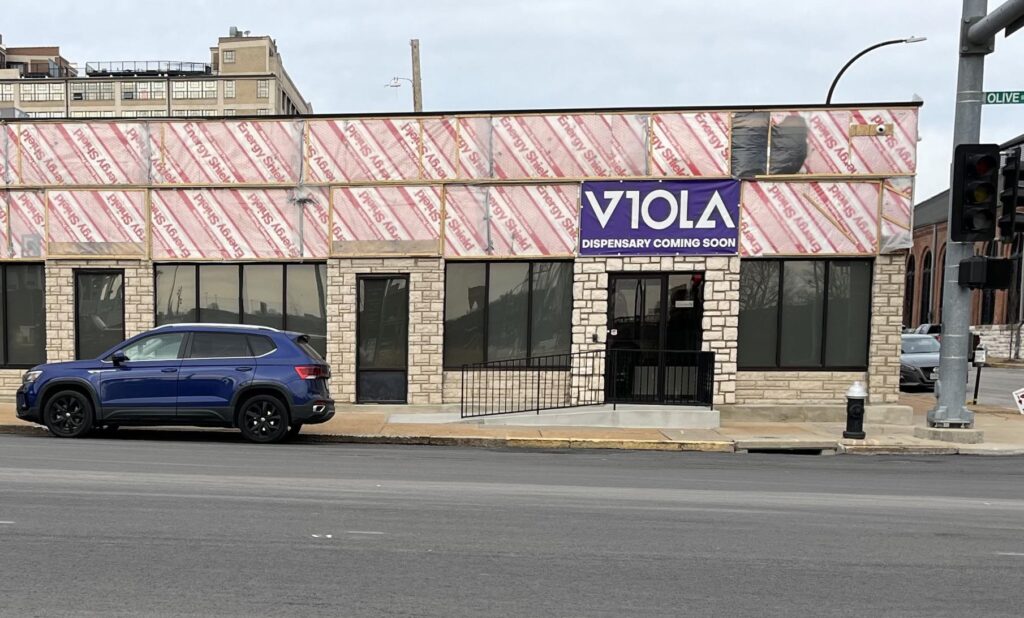
Former NBA stars Al Harrington and Larry Hughes announced just two weeks ago they’d be opening downtown St. Louis’ first dispensary and the city’s only Black-owned weed store. Built right across a small crosswalk from a hulking new Major League Soccer stadium and just down the road from St. Louis’ hockey and baseball stadiums, Viola STL couldn’t have found a better spot for reaching the tens of thousands of sports fans that grace the area nearly every night.
Fast forward two weeks after Harrington and Hughes’ announcement, and a giant sign above Viola’s front entrance still says “Coming Soon.” But guess what: It’s actually open.
The door is unlocked and leads to a waiting room, and then a shopping area where a staff of three smiling budtenders stand ready to serve customers.
The weed for sale is from the grow houses of rival dispensaries: Good Day Farm, Prosper Cannabis and Illicit. But there’s no doubt the much ballyhooed store is already up and running, if not thriving.
“We’re going to have our own flower in here very soon,” said Managing Partner Dan Pettigrew. “We’re really excited to become a big part of this community and Missouri’s industry.”
Good Day Farm: ‘It’s been a fun craziness’
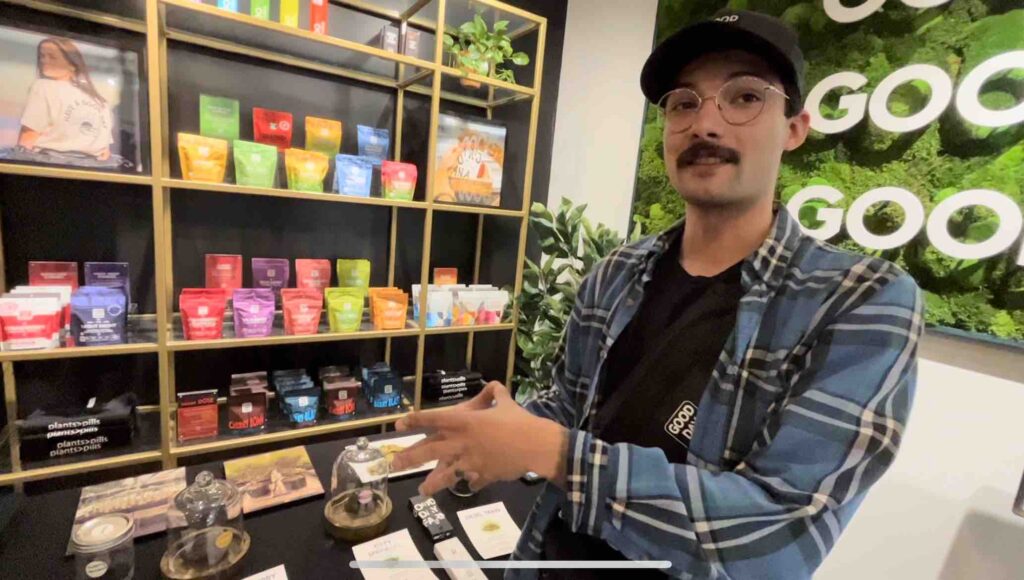
Staffers at Good Day Farm St. Louis spent more than a month building up the store’s inventory for an expected rush of pot buyers on Monday—only to have them show up on Friday. Good Day Farms saw over three times as many paying customers during its first weekend of rec than a typical medical-only weekend. They expect to see that trend to continue in the days ahead.
“The early start was a blessing in disguise because it staggered out the rush and made us more accessible,” said Luke Gerau, Good Day’s brand manager. “We got a ton of customers and it didn’t require anyone having to wait in long lines.”
As part of Good Day expanding its team (200 employees across its 19 dispensaries in Missouri) the number of budtenders at the St. Louis store at any given time expanded from three to five. On Monday morning, the beefed-up staff offered extra assistance to a pair of customers who had the shopping floor all to themselves.
The customers, brothers from St. Louis in their 30s, asked not to be identified. But they smiled as they walked out of the dispensary with eighths of Blueberry Headband and Poison OG flower.
“Enough to get us high,” one of them cracked.
Laurie Gregory, Good Day’s chief marketing officer, said the majority of the products flying off the store’s shelves are flower goodies like pre-rolls and eighths, but added that concentrates and edibles each make up about 15 of total sales. The company also grows and sells Titty Sprinkles, one of Missouri’s most popular strains whose grower donates a portion of proceeds to breast cancer research groups.
“It’s been a crazy few days,” Gregory said, “but it’s a fun craziness.”



